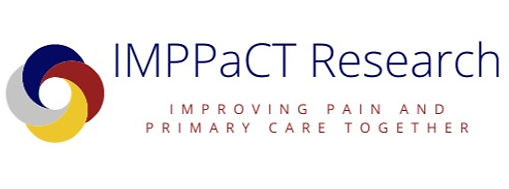
ABOUT US
We are a research team at Queen's University affiliated with the Health Services and Policy Research Institute (HSPRI) and the School of Rehabilitation Therapy (SRT) within Queen's Health Sciences (QHS).
Our research team has three interconnected aims:
1) To advance interprofessional, team-based primary care models
2) To enhance management supports that improve the lives of people living with pain
3) Help prepare future leaders in team-based primary care, pain management, and health services research
ADVANCING INTERPROFESSIONAL, TEAM-BASED PRIMARY CARE MODELS
The way our health system is organized has an important impact on health of patients, communities, and the health system. We do research that aims to improve care and health system outcomes by developing and evaluating new interprofessional models of primary care. An example of our research in this area is a project funded by the Canadian Institutes of Health Research (CIHR) that aims to evaluate the impact of integrating physiotherapists within primary care teams for people experiencing low back pain.


IMPROVING PAIN MANAGEMENT SUPPORTS FOR PEOPLE LIVING WITH PAIN
Pain is complex with multiple biological, psychological, and social factors contributing to the experience. Complex health challenges often require complex interventions that include multiple components. We do research aimed at developing, understanding, implementing, and evaluating complex interventions that aim to improve function for people living with pain. These interventions include self-management supports, exercise based interventions, and interprofessional pain management programs. We evaluate most of these interventions in community and primary care settings, where we think they can have the most impact. An example of research in this area is a Arthritis Society of Canada and CIHR funded project aimed at developing an testing a tailored virtual self-management program to improve functioning for people living with pain.
PREPARING FUTURE LEADERS IN PRIMARY CARE, PAIN MANAGEMENT, AND HEALTH SERVICES RESEARCH
Research evidence is only impactful if it makes its way into practice and we want our research to have an impact. We incorporate knowledge translation into all of our projects by involving key knowledge users in all stages of the research process and communicating our research to the people who are most likely to use it. We also think one of the biggest places we can have an impact is through improving the education provided to entry-level health professionals. An example of research in this area is a study funded by the Foundation for Advancing Family Medicine aimed at developing educational modules to support physiotherapists working or planning to work in team-based primary care environments. Finally, we aim to engage all of our trainee team members in our research so that they can gain applied learning experiences in their future roles as healther service researchers or health system leaders.

